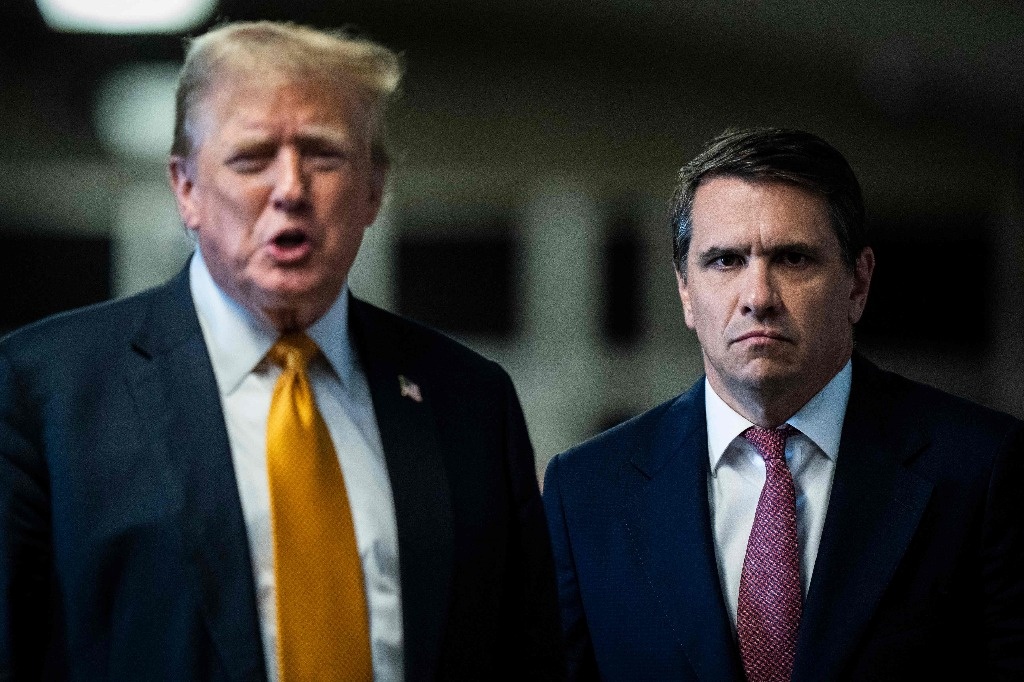President-elect Donald Trump’s transition team plans to eliminate the $7,500 tax credit for the purchase of electric vehicles as part of a broader reform, two sources with direct knowledge of the matter told Reuters.
The end of the tax exemption could have serious consequences for the already stalled transition to electric vehicles in the United States. However, representatives from Tesla – by far the country’s largest seller of electric vehicles – have said they support the move, said the two sources, who spoke on condition of anonymity.
Musk endorsement
Elon Musk, one of Trump’s biggest boosters and the world’s richest person, said earlier this year that eliminating the subsidy could slightly hurt Tesla’s sales but would devastate its U.S. electric vehicle competitors. which include legacy automakers like General Motors.
Repealing the subsidy, which has been a signature measure of President Joe Biden’s Inflation Reduction Act (IRA), is being discussed in meetings by an energy policy transition team led by the oil billionaire Harold Hamm, founder of Continental Resources, and North Dakota Governor Doug Burgum, the two sources said.
The group has held several meetings since Trump’s Nov. 5 election victory, including some at his Florida club Mar-a-Lago, where Tesla CEO Elon Musk has also spent considerable time since the election.
Representatives for the Trump transition and Tesla did not immediately respond to requests for comment.
Automotive Alliance asks to maintain the credits
The Alliance for Automotive Innovation, a trade group representing nearly all major automakers besides Tesla, also did not immediately respond.
The alliance last month in an Oct. 15 letter urged Congress to maintain tax credits for electric vehicles, calling them “critical to cementing the United States as a global leader in the future of automotive technology and manufacturing.”
Difficulties in removal
During the election campaign, Trump repeatedly pledged to end Biden’s “electric vehicle mandate,” without specifying specific policies. The energy-focused transition team has determined that some of the clean energy policies in Biden’s IRA will be difficult to reverse given that the programs have already begun allocating money, including to Republican-dominated states where the programs are popular, sources said.
Trump’s energy transition team sees the EV consumer credit as an easy target, believing its elimination would win broad consensus in a Republican-controlled Congress as part of a broader tax reform bill. .
Trump needs the cost savings from eliminating the credit to help pay for extending his trillions of dollars in tax cuts that are set to expire early in his term, the two sources said. Congressional Republicans are set to adopt the broader tax measure as one of their first actions.
!function(f,b,e,v,n,t,s)
{if(f.fbq)return;n=f.fbq=function(){n.callMethod?
n.callMethod.apply(n,arguments):n.queue.push(arguments)};
if(!f._fbq)f._fbq=n;n.push=n;n.loaded=!0;n.version=’2.0′;
n.queue=[];t=b.createElement(e);t.async=!0;
t.src=v;s=b.getElementsByTagName(e)[0];
s.parentNode.insertBefore(t,s)}(window, document,’script’,
‘
fbq(‘init’, ‘133913093805922’);
fbq(‘track’, ‘PageView’);
fbq(‘track’, ‘Contact’);
fbq(‘track’, ‘Donate’);
fbq(‘track’, ‘FindLocation’);
fbq(‘track’, ‘Lead’);
fbq(‘track’, ‘Search’);
fbq(‘track’, ‘Subscribe’, {value: ‘0.00’, currency: ‘MXN’, predicted_ltv: ‘0.00’});
fbq(‘track’, ‘ViewContent’);
#Trump #eliminate #credits #purchase #electric #vehicles
–
**How might the elimination of EV tax credits impact the competitiveness of American auto manufacturers in the global electric vehicle market?**
## Going Electric: A Debate on Subsidies and the Future of EVs
**Introduction:** Welcome to World Today News, where we delve into the hottest topics shaping our world. Today’s focus is on the potential elimination of tax credits for electric vehicles under the incoming Trump administration. This has sparked a heated debate, with proponents arguing it will boost the economy and opponents warning it will stifle the growth of clean energy.
**Our Guests:**
* **Ms. Sarah Greenwald:**
Senior Policy Analyst at the Environmental Defense Fund, a leading environmental advocacy group.
* **Mr. John Thompson**:
Chief Economist at the American Automotive Manufacturers Association, representing traditional automakers.
**Section 1: The Proposed Policy Shift**
* **Interviewer:** Welcome, both. Let’s start by understanding the proposed policy changes. Mr. Thompson, can you explain the rationale behind the Trump transition team’s decision to target EV tax credits? What benefits do they see in this move?
* **Interviewer (to Ms. Greenwald):** Ms. Greenwald, what are the potential consequences of eliminating these tax credits for consumers and the overall adoption of electric vehicles?
**Section 2: Competing Interests**
* **Interviewer:** This issue seems to pit environmental concerns against economic considerations. Mr. Thompson, how does the auto industry view the role of government incentives in driving technological innovation and market adoption?
* **Interviewer (to Ms. Greenwald):** Ms. Greenwald, from an environmental perspective, what are the long-term ramifications of reducing support for electric vehicles, especially in the context of climate change?
**Section 3: The Tesla Factor**
* **Interviewer:** The article mentions that Tesla, the largest American EV manufacturer and a vocal supporter of President-Elect Trump, reportedly supports this move. Mr. Thompson, what might explain this seemingly counterintuitive stance, especially considering Tesla is a direct beneficiary of these credits?
* **Interviewer (to Ms. Greenwald):** Ms. Greenwald, how significant is Tesla’s support in influencing the wider debate on EV subsidies? Does their stance undermine the arguments made by other EV manufacturers and advocates?
**Section 4: Political Landscape and the Future**
* **Interviewer:** Looking ahead, how do you foresee this policy debate playing out in Congress? Mr. Thompson, with Republicans controlling both houses, is there any room for compromise or potential amendments to soften the impact on EV adoption?
* **Interviewer (to Ms. Greenwald): ** Ms. Greenwald, what are the potential levers for
advocacy groups and environmental organizations to influence the outcome of this policy decision?
**Conclusion:** Thank you both for sharing your valuable insights on this complex issue. The future of electric vehicle adoption in America hangs in the balance, with significant implications for the environment, the economy, and consumers alike. It remains to be seen whether this proposed policy shift will ultimately accelerate or hinder the transition to a more sustainable transportation system.


